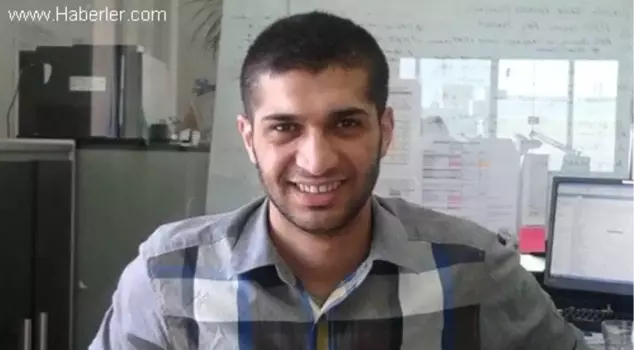
15.01.2014 13:01
Hassan Al Kilani knows he's playing with fire. The secret police have made that very clear. If Jordan's government won't do anything to safeguard the LGBT community, he argues, at least "let us protect ourselves." Hassan Alaa Al Kilani has nothing against tradition. In fact, as a practicing Muslim, he's.
Hassan Al Kilani knows he's playing with fire. The secret police have made that very clear. If Jordan's government won't do anything to safeguard the LGBT community, he argues, at least "let us protect ourselves."
Hassan Alaa Al Kilani has nothing against tradition. In fact, as a practicing Muslim, he's all for tradition. And that includes jihad, or holy war, which the 24-year-old also believes in, with all his heart.
"Under the name of jihad, different people do different things. When someone takes away your fundamental rights, and you claim them back - that is jihad. It is exactly what I am doing when I am defending the LGBT (lesbian, gay, bisexual and transgender) community."
The confidence Al Kilani exudes as he talks about how his community should be accorded their fundamental rights is the labor of a long struggle. First he had to convince himself, later his family and now his society.
"At first I felt like I was doing such a bad thing that I could not change," he says of his realization he is gay, "that I needed to kill myself. Over time I decided to be who I am. I told myself that if they want to kill me, I would at least not do the job for them. The strength came from when I understood that I want to live in this world as I truly am, a gay man, and that I am willing to pay the price for it."
Backward steps
Jordan is the only Arab country where homosexual acts are not a crime, and since 2008, the LGBT community has been allowed to assemble and form organizations.
Those days - the late 2000s - were a good time for the community, Al Kilani says, adding that Amman, a city of a million people, had four gay clubs.
But that started to change with the Arab Spring, which gave a boost to the Muslim Brotherhood and other Islamists in Jordan. Gay clubs were targeted in attacks and some closed down, Al Kilani says. It became more dangerous to be gay, and more and more of his friends left the country as a result.
Regardless of the law, tradition prevails. Living openly as a gay man is considered 'haram,' a sin, and a social taboo. Trying to advocate for the rights of the LGBT community is, therefore, the "taboo of the taboo," as Al Kilani puts it.
In addition, the eyes and ears of the Mukhabarat, the secret police, are everywhere, monitoring and immediately cutting off every initiative for change at their roots, he says, making it almost impossible to bring gay rights forward.
"As soon as I arrange a meeting or post anything online I get a phone call from the secret police urging me to stop what I am doing," Al Kilani says. "Luckily, I've never had any serious problems, but I don't want to get into trouble. If I were thrown into jail no one from my family would come and ask for me."
And although Al Kilani has the right to start a gay organization, a license would never be granted. Even he was surprised by the response to his application at the Ministry of Social Development.
"I told them: if the government can't protect us allow us to protect each other. Let me open this association so that the next time someone will be kicked out of their home, we can protect them. They took my application and threw it to the trash can in front of my eyes, while thanking me and promising to take it under consideration."
Later he was told by a ministry employee that they wouldn't approve the opening of an LGBT group for fear of radical Islamists. "You could be shot by them, they will say that you are breaking Muslim rules, and that killing you will send them to heaven," he was warned.
'Do we deserve to be defended?'
But Al Kilani won't be put off by secret police, discrimination from the authorities or societal rejection. His primary concern is how to finance the movement he believes the Jordanian gay community so desperately needs.
"We want to help LGBT people who are rejected by their families and have no place to live," he says, adding that he doesn't even have the funds to rent a room where the community can meet.
At the same time, he must explain to his own oppressed community that he's not fighting a losing battle.
"When I tell my gay friends that I want to open an association for LGBT rights, they say: You really want to defend us? Do we deserve to be defended?"